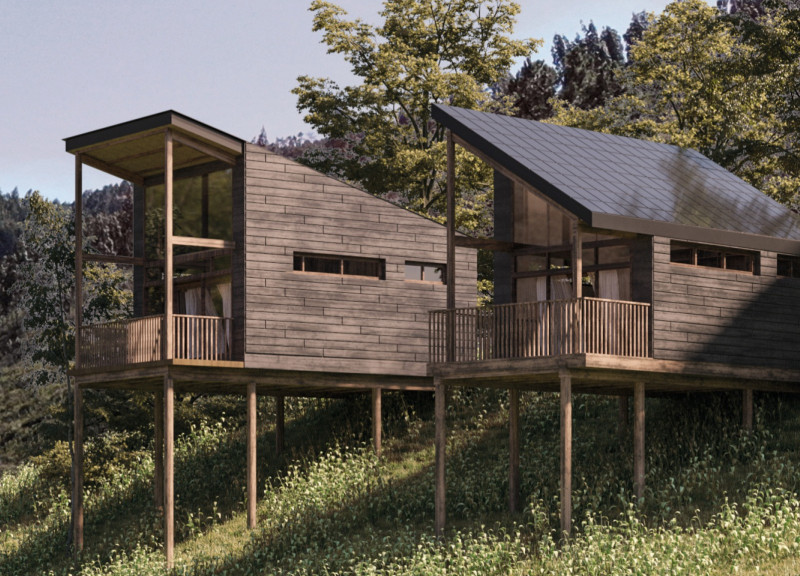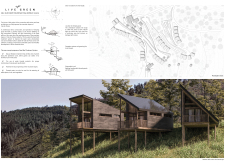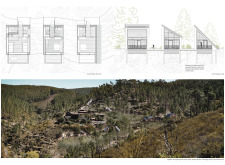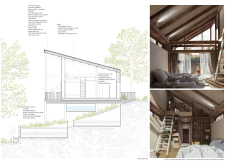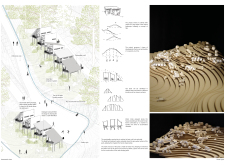5 key facts about this project
The Self-Sufficient Mountain Yoga Retreat Centre is situated in the tranquil landscape of Vale de Moses, designed to connect individuals with nature. It provides a space for relaxation and personal growth, focusing on sustainability and ecological responsibility. The overall design seeks to integrate sleeping pods that foster a sense of calm while achieving self-sufficiency.
Reed Bed Treatment System
A key component of the retreat is the Reed Bed Treatment System for managing greywater. This system filters wastewater from the sleeping pods using natural processes and directs it into channels along walking paths. This approach not only minimizes environmental impact but also recycles water, allowing for irrigation of local plants and enhancing the natural landscape around the retreat.
Photovoltaic Roof
The design includes a photovoltaic roof that contributes to energy efficiency. This roof generates electricity for lighting and heating, as well as providing hot water. By utilizing renewable energy, the retreat reduces its dependence on outside resources while ensuring a comfortable environment for guests.
Water Management Strategy
Water management is an important aspect of the design. Rainwater tanks are positioned near the sleeping pods to collect and store water. A system of piping connects these tanks, allowing for even distribution of the collected rainwater. This strategy promotes conservation and supports the local ecosystem, staying true to the retreat’s commitment to sustainability.
The sleeping pods are constructed from timber sourced from local fallen trees. Each pod has been designed to take full advantage of natural light and offers views of the surrounding environment. This careful placement enhances the experience of being in nature and reinforces the retreat’s focus on ecological balance.


